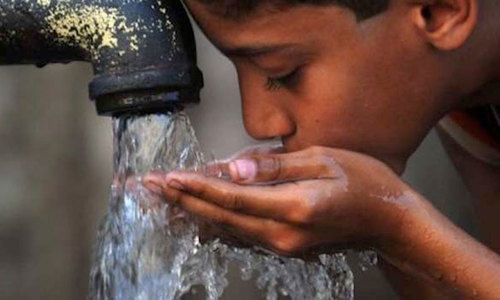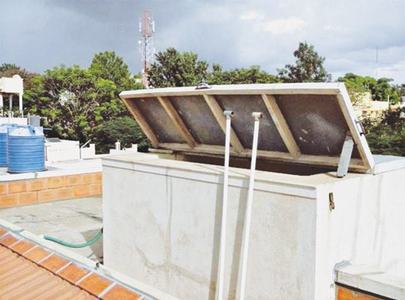KARACHI: The ‘brain-eating’ amoeba — technically called naegleria fowleri — has claimed the life of a teenage schoolgirl, making her the second victim who died in a short span of one month, health officials confirmed on Monday.
The officials said the single-cell microorganism had caused death to two people within a month.
A 40-year-old man, who lived in Gulistan-i-Jauhar, was the first victim whose death was confirmed early last month.
“She is the second victim of the germ this year in Sindh and both cases are reported in the provincial capital,” said a senior official in the health department.
As it was feared with the advent of the current sizzling summer, naegleria fowleri has begun claiming human lives and the situation demands greater measures on part of the relevant authorities as the germ finds little resistance because of poor chlorination in most parts of the city.
Officials said the girl, a student of 10th grade, was brought to a private hospital on May 30 in a precarious condition from North Nazimabad. She died on Sunday. The death was confirmed with the cause to the provincial authorities on Monday, they added.
Dr Zafar Mehdi, heading the focal group for naegleria, said the victim would pray at home and the lethal amoeba might have attacked her during ablution.
“We have inspected samples of water being supplied in the neighbourhood and found insufficient traces of chlorine in it,” he added.
Chlorination is the key method to kill the germ and keep the life-taking disease at bay. Another way is to use boiled water while cleaning nose as the germ enters through the nasal cavity of its victim and attacks the brain.
Officials said the Karachi Water and Sewerage Board had been verbally informed about the absence of chlorine in the water that killed the teenager.
“Chlorination in the water being supplied to areas such as North Nazimabad, North Karachi and Nagin Chowrangi, is significantly insufficient,” said Dr Mehdi.
Last year, an official report shockingly revealed that most neighbourhoods of the city were being supplied with water not chlorinated at all. The situation in other districts of Sindh was even worse.
The focal group for naegleria in its various surveys collected samples of water and results showed that more than half of the city was supplied with water chlorinated much less than the desired levels. Even the teams found no chlorination at all at more than 90 per cent of the pumping stations of the KWSB risking the lives of millions in the teeming metropolis.
Officials and experts warned that coming monsoon could carry greater consequences as it would allow the germs getting breeding grounds in the shape of stagnant rainwater and water stored in tyres at shops and threaten life as it did two years ago when more than a dozen people died because of it.
Published in Dawn, June 5th, 2018













































